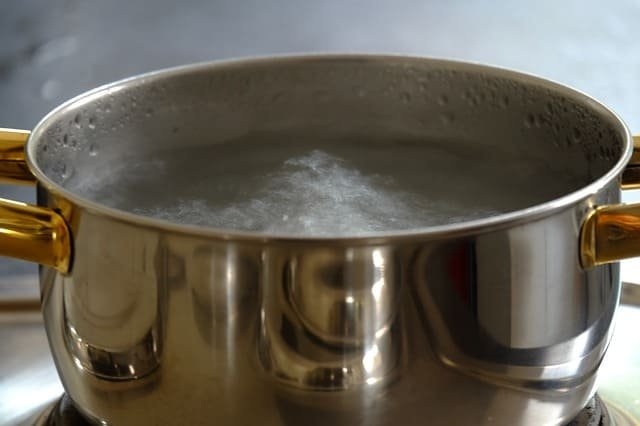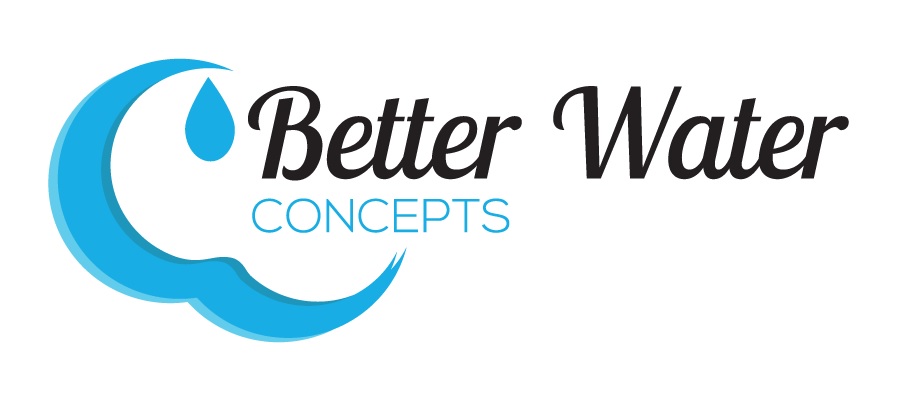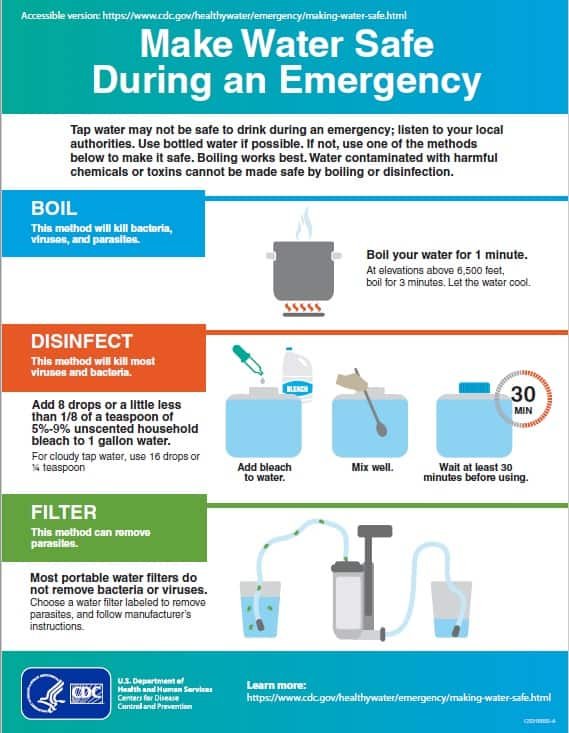Home Water Treatment
Does Boiling Water Purify It?
We're an affiliate
We hope you love the products we recommend! Just so you know, we may collect a share of sales or other compensation from the links on this page. Thank you if you use our links, we really appreciate it!
A common question people ask is: “does boiling water purify it?
Have you ever heard a news report telling people to boil their water before they drink it?
There seems to be some confusion about what boiling water actually accomplishes. This confusion arises from public health organizations periodically issuing boil orders for drinking water.

It leads one to believe that boiling fixes everything that is wrong with water. That is a dangerous belief.
This blog post will help you understand the need for boil orders, what boiling water will not do and what you can do if you want to purify your water.
What is a Boil Order?
A boil water order is a notice issued to consumers that their tap water does not meet safety standards, and should not be used for drinking, cooking or washing dishes without boiling it.
Why is a Boil Order Issued?
Boil Orders are used to protect consumers from contamination in the water supply.
For example, this could be because of a water main break that caused very low water pressure. The low pressure condition could allow biological impurities to enter the water system.
The order instructs residents on how and when to use water for cooking, drinking, bathing, and other needs.
The boil order is a necessary precaution to ensure public safety. When water officials are confident the threat of contamination has passed, the boil order is lifted.
The Boiling Temperature of Water
The boiling point of water is at 100 Celsius or 212 Fahrenheit. The change in boiling point of water is because of different elevations, barometric pressure, and external forces.
That high temperature will be enough to neutralize any harmful biologic substances.
How long should you boil water to make it safe to drink?
Boiling is the surest method to kill disease-causing organisms, including viruses, bacteria and parasites. If you have clear water: pour it into a pan and bring to boil for 1 minute (or 3 minutes at higher elevations).
Let cool before storing in clean containers with tight covers; this will keep your boiled water safe from any future contamination!
Again, Does Boiling Water Purify It?
To answer this question accurately, we need to clarify some things.
What is pure water?
Pure water is water with no dissolved substances.
Technically, pure water is two parts hydrogen and one part oxygen or H2O, that’s it.
It does not have any inorganic material or organic material. Pure water does not contain heavy metals or other materials that are hazardous to the human body.
So, pure water does not have any:
Minerals – calcium, magnesium, fluoride, etc
Metals – lead, copper, mercury, etc
Dissolved Gases – chlorine, oxygen, etc
Microscopic Organisms – bacteria, viruses, fungi, etc
Man-Made Materials – PFOAs, hexavalent chromium, pharmaceutical drugs, etc
But, water won’t stay in a pure state for long.
Why?
Water is the Universal Solvent.
This simply means that water can dissolve more substances than any other liquid.
Water can actually dissolve solids like limestone. It can also dissolve gases like carbon dioxide and oxygen. It doesn’t take long for water to become less than “pure” water.
Therefore, water does not stay pure. It will dissolve other substances it comes into contact with, and this process continues until the water stops dissolving or evaporates.
The Definition of Purify
To purify is to make pure. So, to purify water is to make it pure. As discussed above, pure water is two parts hydrogen and one part oxygen and nothing else.
The goal for water purification is to make the water safe to drink. To be clear, it is making the water more pure.
The issue is, we can make water more pure and still be unsafe to drink.
A better term to use is to make water potable instead of purifying.
What is Potable Water?
Potable water is water that is safe to drink, does not contain harmful substances. In other words, potable water is suitable for human consumption. Drinking potable water does not produce any ill effects and does not have any harmful health effects.
Now we’re getting somewhere. It is more accurate to say the water is potable.
The term potable water covers all health compromising impurities that could be in the water.
Examples of contaminants boiling water does not remove:
- lead
- chromium
- pharmaceuticals
- fluoride
- radioactive particles
Boiling Water does not Purify It
Boiling does not purify water. It does, however, kill or inactivate bacteria, viruses and other biological substances. It will also remove dissolved gases like chlorine and oxygen.
If the concern is biological contamination, boiling water for the proper time will make it safe to drink.
Boiling Water vs Distilling Water
Distilling water purifies it. The distillation process heats the water to boiling. The distiller boils the water, captures the water vapor or steam, then condenses the steam back into a liquid.
Water distillation is heating water to its boiling point and capturing the water vapor as it boils off, leaving behind all the impurities.
As the water vapor is cooled, it turns back into a liquid and is stored in a separate container.
This purifies water because it removes everything from the water but hydrogen and oxygen.
People have been distilling water for centuries to purify it and leaving behind contaminants
Does Boiling Water Purify It?
Boiling water is used to kill bacteria and viruses. In fact, it’s one of the most effective ways to do so because heat kills these microorganisms in a short time. Typically, a boil order is a short-term emergency solution used to ensure public safety.
Boiling does not purify water by itself. Boiling kills disease-causing organisms, but does not remove many of the chemicals in the water such as fluoride, lead, arsenic or mercury.
Distillation purifies water by killing all living things in it and removing everything else from the water.
Purifying water is important to stay healthy and avoid catching diseases. But does boiling the water really make it safe? And while boiling your tap or well-water will rid it of harmful bacteria, there’s no guarantee that you’re not still getting exposed to other contaminants like lead and arsenic.

